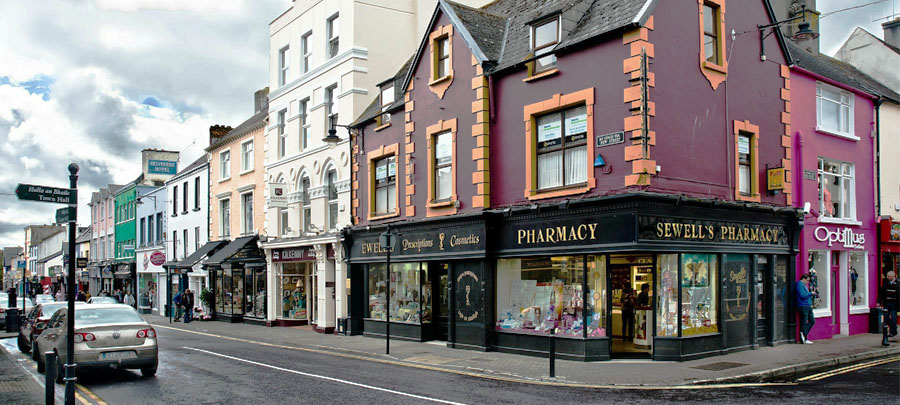

Most wine professionals describe Ireland’s wine market using words like stable, traditional, mature, open to business. Considering this and the fact that we’re talking about a top 15 wine market globally, one that benefits from the country’s recovering economy, it’s no surprise that many wine producers are trying to consolidate their brands here. Economic conditions in 2023-2024 have shaped the import trends for wine and spirits in Ireland. Inflation and economic uncertainty have led to a more cautious approach to spending among consumers, which resulted in a polarization of the market, with both value-for-money products and premium offerings performing well, while the mid-tier market has faced challenges.
Wine imports reached 374 million EUR in 2023, a healthy 12% increase since the previous year, while spirits imports also saw an even larger increase, of 25%, to 170 million EUR.
In the following article, we’ll analyze some of the trends and perspectives, as well as the situation surrounding the top wine importers, retailers and distributors from Ireland.
Ireland is known as a country with a rich culture of enjoying alcohol. Beer continues to dominate sales with over 45% of the drinks market, while wine, after exhibiting significant growth in the ’90s, has stabilized and gravitated at around 9 million cases per year.
Off-trade Vs. On-trade
Over 80% of the wine is sold off-trade in Ireland and the distribution of the lower-priced wines is dominated by large supermarkets – mainly Aldi and Lidl. Working with them is key for producers with $5-10 wines who can provide large volumes. Well-established brands, as well as the new celebrity-powered brands are also doing very well off-trade.
The country has a number of popular country hotels and golf resorts which can be big business as many of them carry top Italian, French or Chilean wines.
Even if it only has a 20% market share, on-trade is still very strong in Ireland. The huge number of gastro pubs, restaurants and bars from Dublin and from the other larger cities like Cork, Galway or Limerick are an excellent target for producers of higher-priced wines.
Consumption of better wines is also fueled by the rise in the income of the population. Like in many other European countries, Irish consumers are becoming increasingly willing to spend more on drinks that they perceive as high quality. In this category we can find premium brands and also organic, biodynamic and sustainably produced wines.
Spirits, particularly whiskey and gin, are also benefiting from this trend, with premium brands seeing increased sales volumes. Considering this change in the market, spirits and wine importers from Ireland are also more open to expanding their portfolios with higher priced products.
Other trends
Ireland’s older population enjoys wine more often and in a higher percentage than the young but the millennials are buying more expensive wines and tend to try a wider range of varieties. Whites are doing better than reds and sparkling wines, even if expensive because of the extra taxation, are gaining traction, especially Prosecco.
Chile remains a top supplier of wines for Ireland, but the average prices continue to decrease slightly each year.
Lower alcohol or even no-alcohol wines are a rising category in Ireland the upcoming years, especially with the Public Health Alcohol Act.
This trend is especially prominent in parts of the younger demographics, who prioritize health and well-being while still desiring options for social enjoyment without alcohol’s impact. In response, importers have expanded their offerings, introducing a wider range and increased quantities of non-alcoholic and low-alcohol beverages. These products are now commonplace in both supermarkets and specialty retailers, reflecting their rising popularity and market significance.
In the spirits category, while whiskey continues its domination, gin also continues to gain popularity. Irish consumers prefer locally produced craft gins but spirits importers opened the door for international gin brands which are now also on the rise, particularly those offering unique flavors and botanicals. The trend towards experimentation with flavors is strong, with consumers showing interest in gins infused with exotic fruits, herbs, and spices. Importers are capitalizing on this trend by introducing a wider variety of gins to the market.
Working with wine importers and distributors
As Ireland already has a strong and developed alcoholic beverage market, the businesses are quite open to new deals and products. Irish wine importers tend to be positive people who value personal connections, this is why the more time one spends in the market to create loyalty, the better the results.
If you’re just starting, a well designed, smart email, where this is allowed, followed by cold-calling can be a good option. We provide an excellent guide about this step. We also offer complete details about close to one hundred Irish wine importers and distributors in our updated database.





